20 oddities that surprise foreigners in Japan
The originality of Japanese culture is expressed in many things. The Japanese are not like us in everything, starting with the turns of speech and ending with strange ways to make an offer. Perhaps that's why Japan attracts and fascinates, causes a desire to study more deeply unusual traditions. Once in the land of the Rising Sun, be prepared for the oddities that are considered the norm for native Japanese.
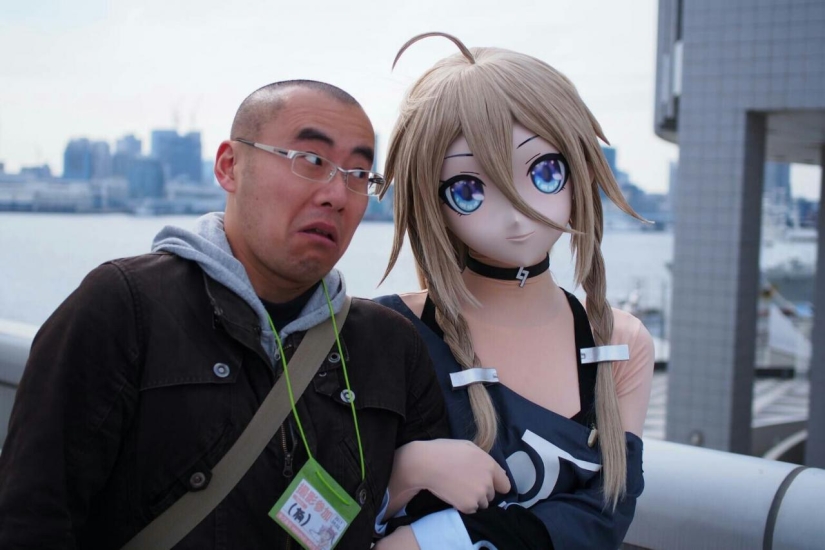

In Japanese, "yes" (hai) and "no" (iie) have a similar sound. There are also phrases that mean both approval and denial. For example, "yes" or "no" can be expressed with the words "kekkou desu", "ii desu". In order to orient yourself correctly, you need to take into account the situation, facial expression, gestures, context.
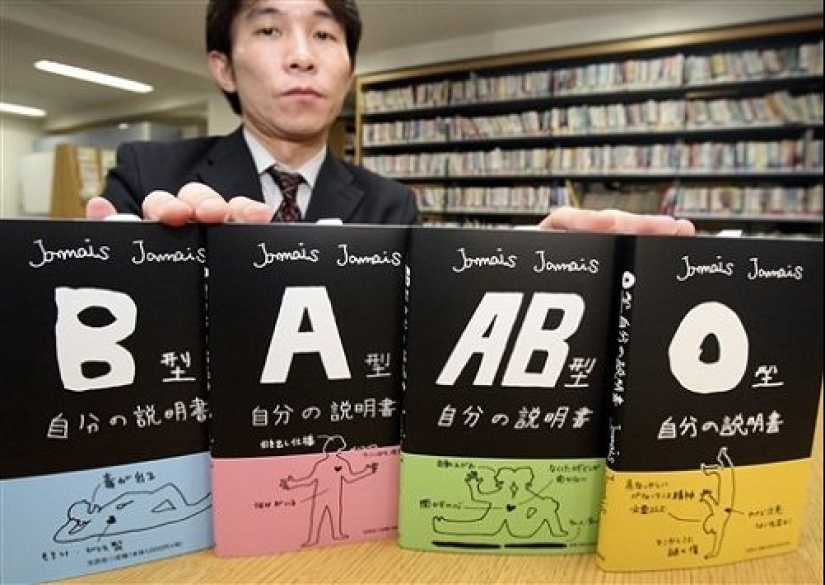
It is quite normal for Japanese to mention a blood type in a resume or at an interview with an employer. In Japan, a blood type can tell a lot about a person. For example, A (II) corresponds to well-organized and shy people, O (I) group is inherent in ambitious optimists. Rare carriers of the AB (IV) group are most often eccentric and unpredictable. The third blood group B (III) is considered the most unfavorable, because it means a selfish person.
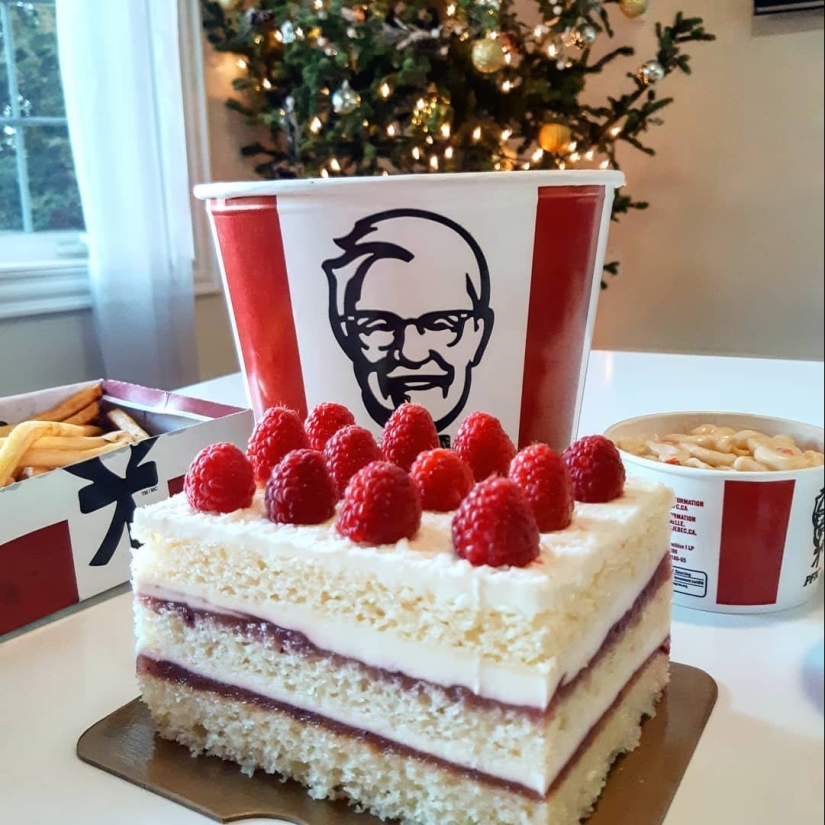
The Japanese easily break the usual stereotypes. Here, Christmas is perceived as an occasion to meet a loved one. Getting into Japan on Christmas, it's hard to find a free hotel room. Couples in love book them long before the winter holidays. It is also customary here to serve fried chicken on the table at Christmas. Since 1974, KFC has been offering its chickens as a Christmas dish instead of the traditional turkey in the West.
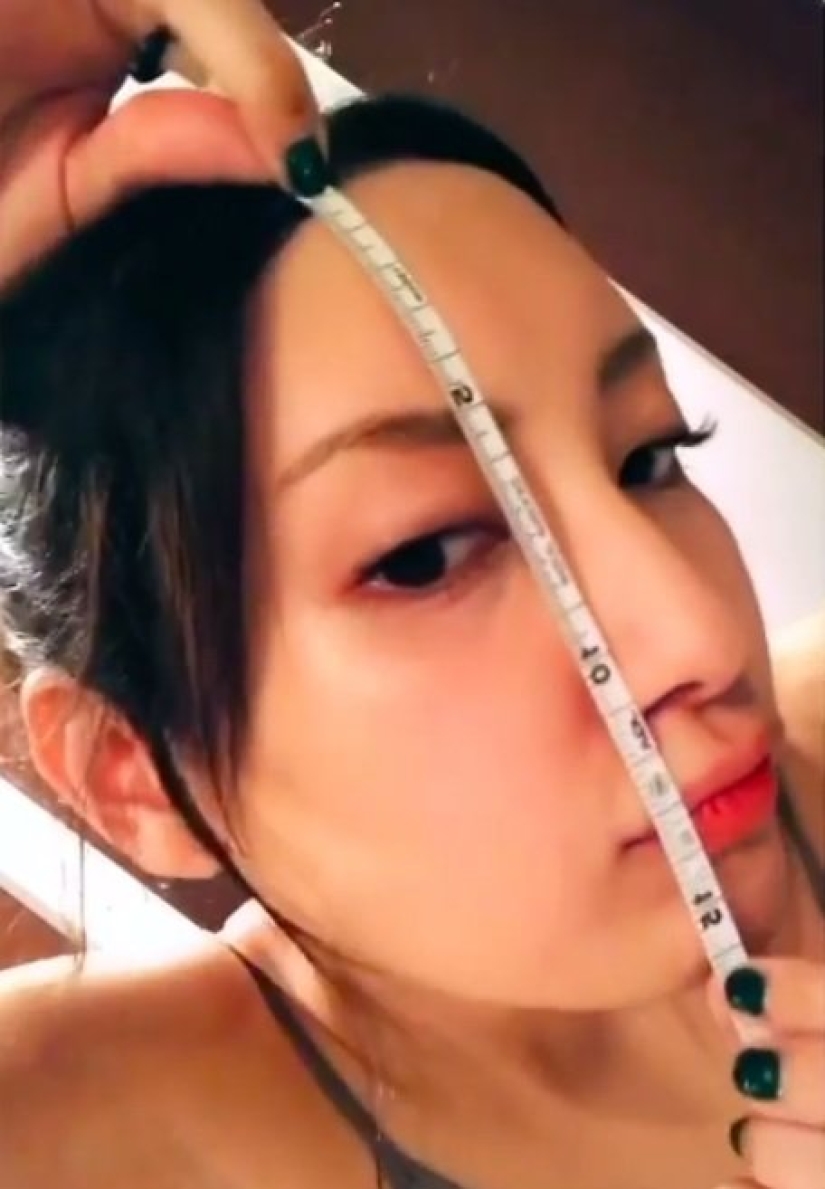
Europeans, unlike the Japanese, do not pay attention to the size of the face. And in In Japan, a small face is the main sign of beauty. Ignorance of the peculiarities of Eastern culture can lead to an incident, as happened with Madonna. The TV presenter of the Japanese show complimented her, saying about the small face of the star. Madonna was confused and replied that she had a big heart. The American star did not realize that she had received a compliment that every Japanese woman dreams of.
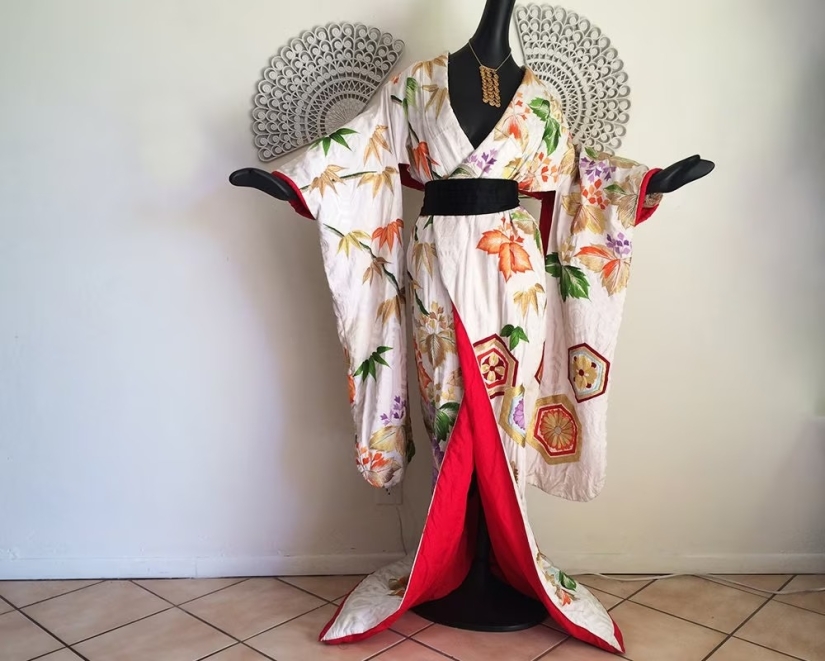
There are clothes that only unmarried Japanese women can wear. For example, furisode is a kimono with long sleeves. Usually parents buy furisode daughters or take them at the rental point on the Day of majority, which comes at the age of 20. The wide belt is decorated with a strip of bright fabric to attract attention. Married ladies cannot afford such a liberty.

Young Japanese people make their face visually smaller with the help of long bangs, which is called mae-gami. By nature, most Japanese are burning brunettes. Already at school they begin to lighten their hair. The fashion trend is called "tapatsu", which literally means "tea hair".
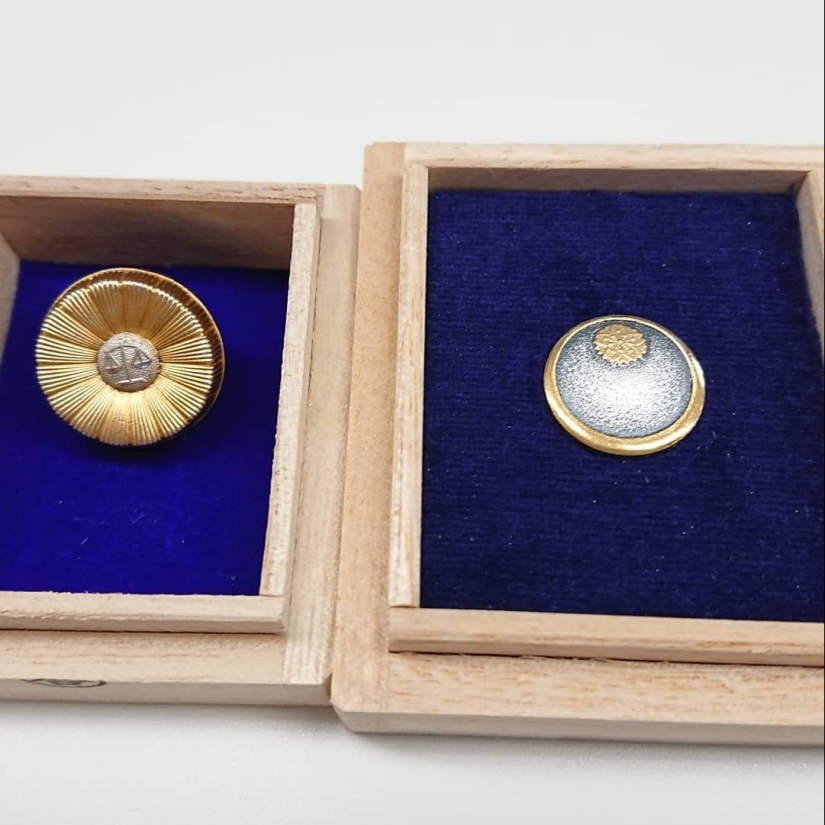
Lawyers of Western countries declare their qualifications with the help of business cards. In Japan and Korea has special badges for these purposes. A Japanese lawyer can be distinguished by a special badge on the lapel of his jacket.
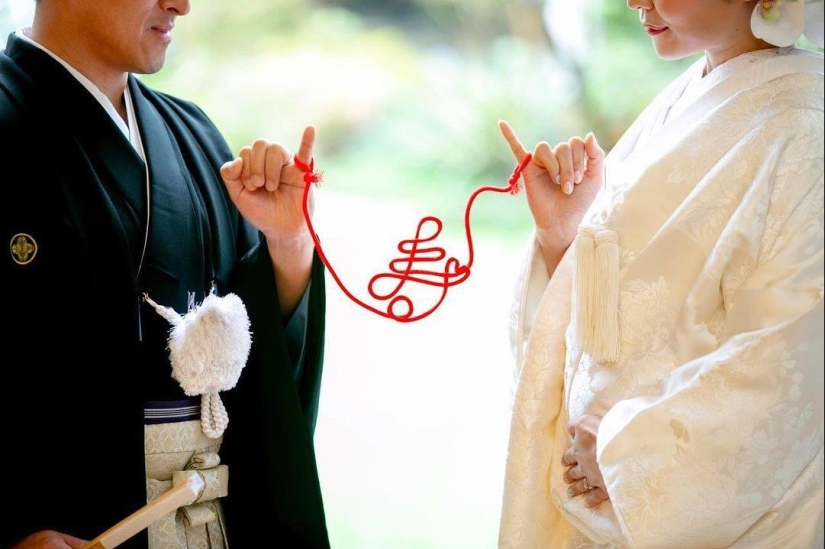
In Eastern culture, there is a belief that couples are connected by a red thread that is attached to the little fingers. The connecting thread is formed from the very birth of a person. During life, it stretches, gets tangled and cannot break.
The little finger plays a special role in communication. If a Japanese asks "Is she yours..." and gestures with his little finger, it means that he means "girlfriend", "mistress" or "wife". Unless you're talking to a member of the Yakuza, the Japanese mafia, where it means that a mistress, girlfriend or wife has been beheaded.

Ordinary Japanese do not use sunglasses. They are protected from the bright sun by a special umbrella. The Japanese believe that sunglasses are worn only by foreigners, artists and other celebrities.
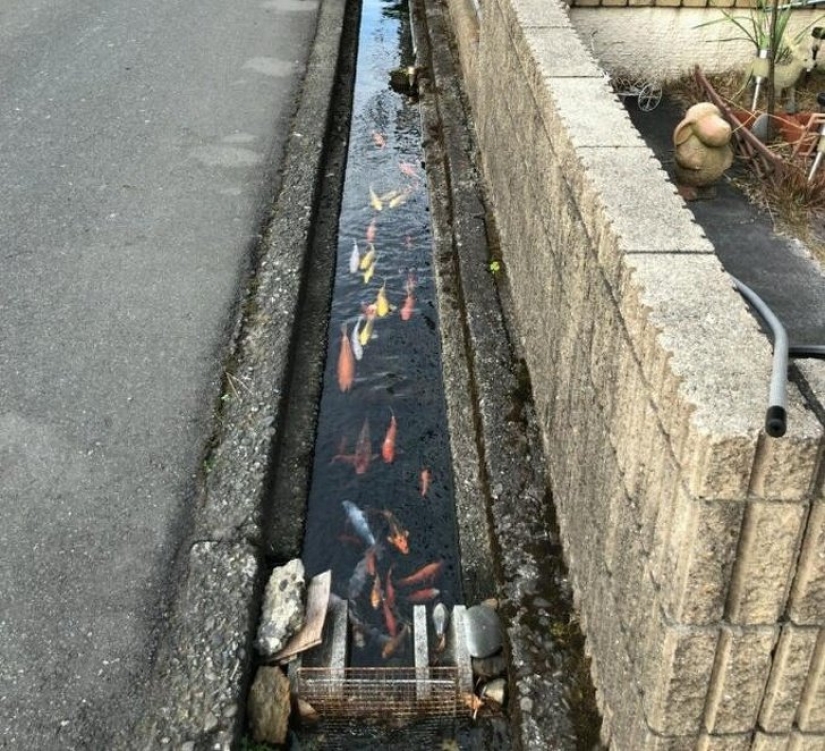
There are legends about the cleanliness of the Japanese. Their country is incredibly clean. For example, the water in the drainage channels is transparent, like a spring. It is not surprising that koi fish have chosen the channels. These beautiful and expensive fish live only in clean water. It is noteworthy that no one comes to mind to catch fish for the purpose of profit.
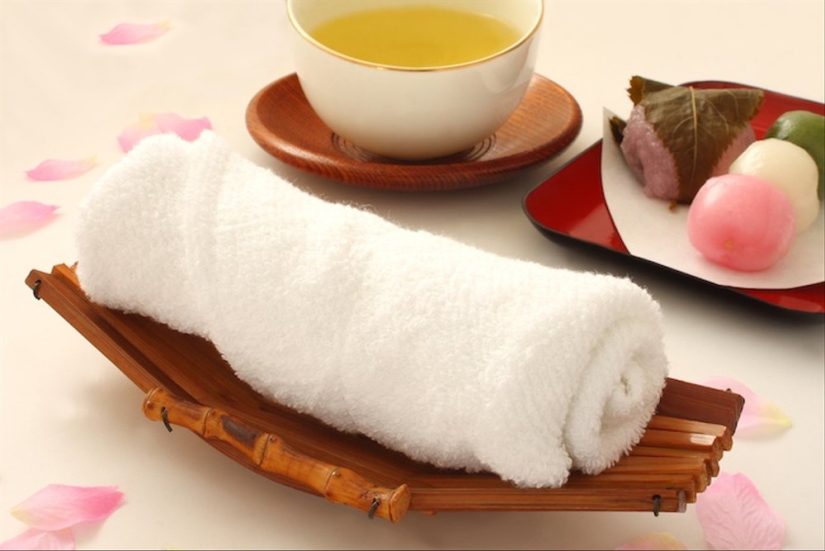
The service of prestigious Japanese restaurants includes the supply of hot wet wipes, which are called "osibori". They are intended for washing hands before eating. After eating, use other napkins. Tourists often confuse napkins unknowingly, undermining the respect of the Japanese.
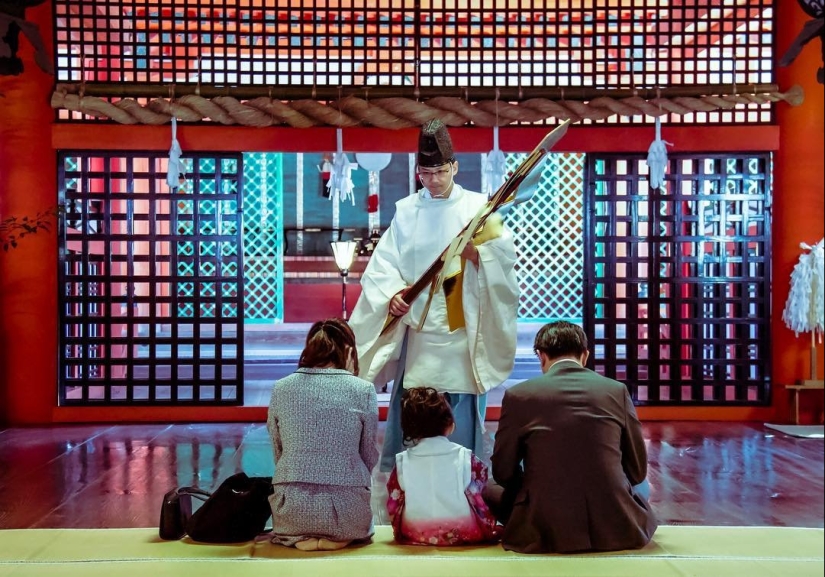
Average residents visit religious places during the most significant events of their lives. Children's parties, weddings, funerals are held in temples and churches. If not in a temple, then in a room stylized for it.
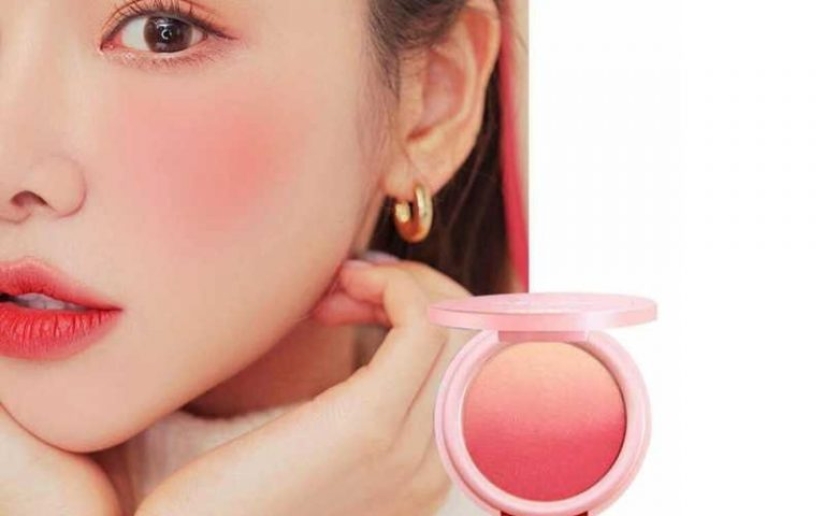
Fashionistas of the land of the Rising Sun focus on blush, not lipstick or shadows. Bright blush emphasizes the girl's energy. It seems that she has just left the training hall, while maintaining freshness and a pleasant aroma.
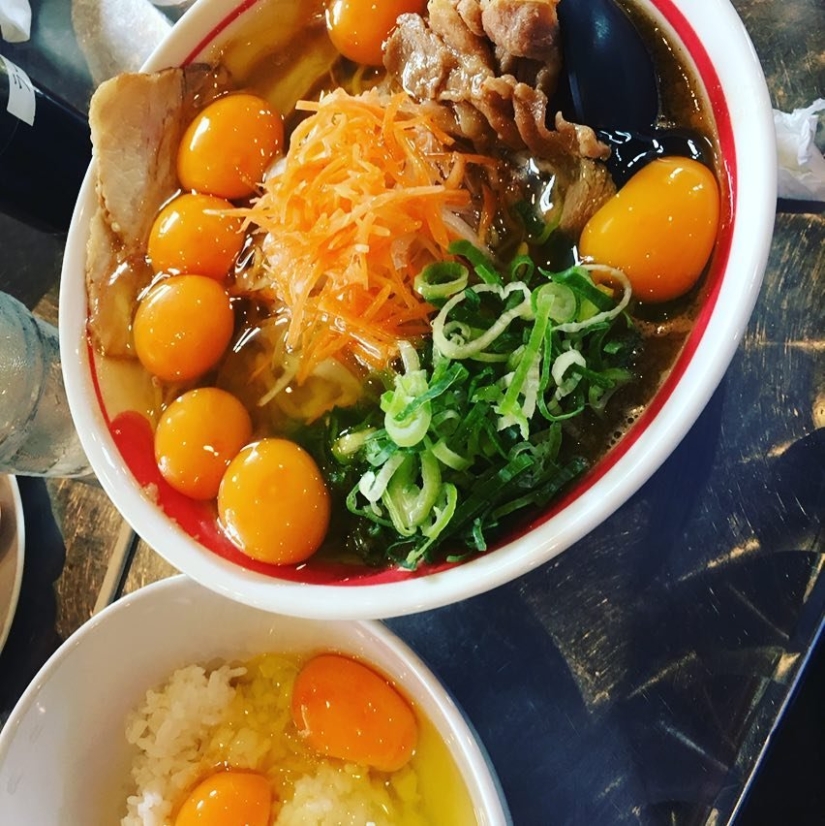
Raw eggs are very popular with the Japanese. They are put in soup, rice, meat. Raw eggs are an integral part of bachelor cuisine. The most common bachelor food is raw eggs with seaweed, white rice and dried seasoning.
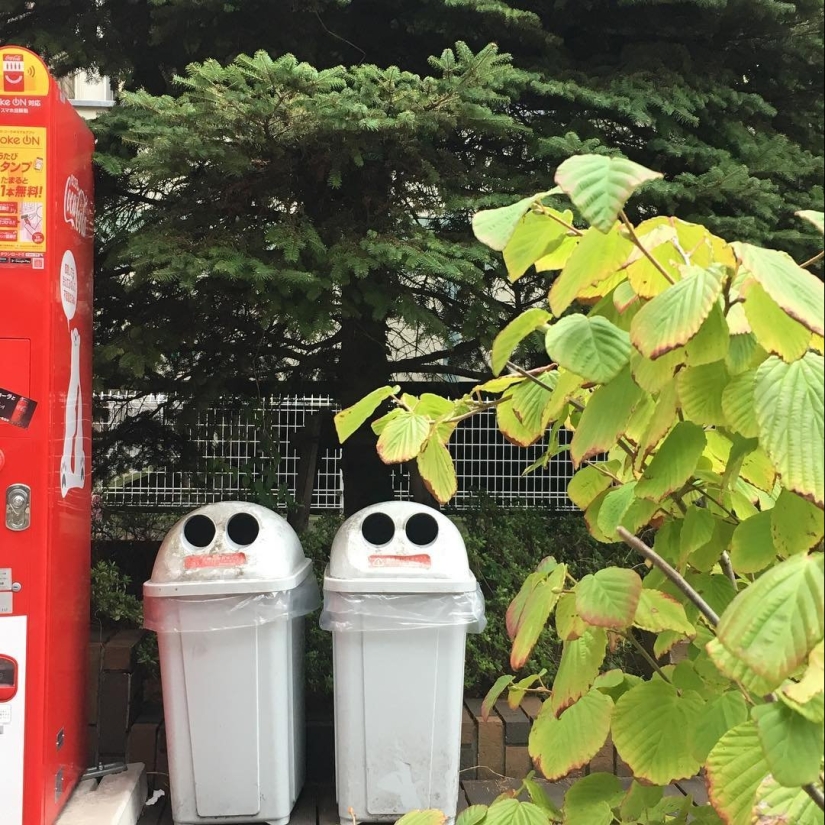
Tourists often get into awkward situations due to the lack of garbage cans on the streets. Sometimes they can be found near a vending machine or supermarket. The Japanese always clean up after themselves, bringing all the garbage home, where it is disposed of in the accepted way.

Some people think that the Japanese are not romantic. In fact, romance in Japanese looks quite practical. For example, the context of the question whether a girl will wash a guy's underwear is identical to a hand offer. Such frankness is not typical of the Western world.
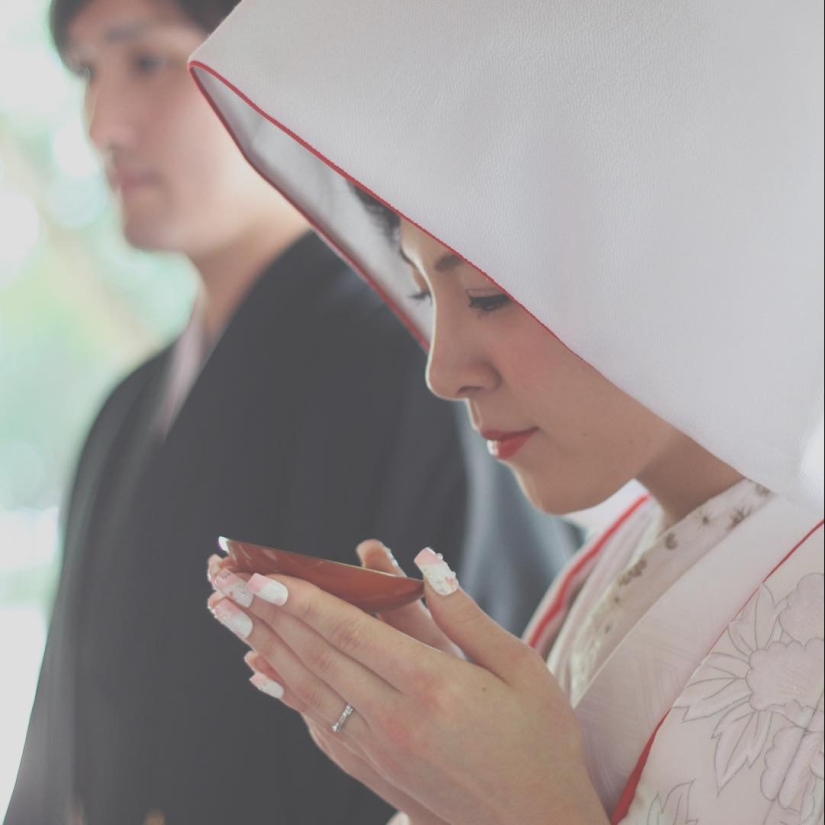
The Japanese know 1001 unusual ways to make a marriage proposal. For example, ask a girl if she will cook miso soup for a companion. It is noteworthy that this soup is included in the daily menu of every Japanese. There are many recipes for misoshiru. An offer of a hand with a culinary accent means the highest degree of trust.

The quiet and modest Japanese have customs when it is necessary to make noise. For example, eating dishes with noodles, you need to squish. It is believed that squelching is the best way to quickly cool the noodles to the desired temperature and not get a tongue burn. Another squelching helps to enjoy the aroma of soba. In addition, you will not have to be bored waiting for the food to cool down.
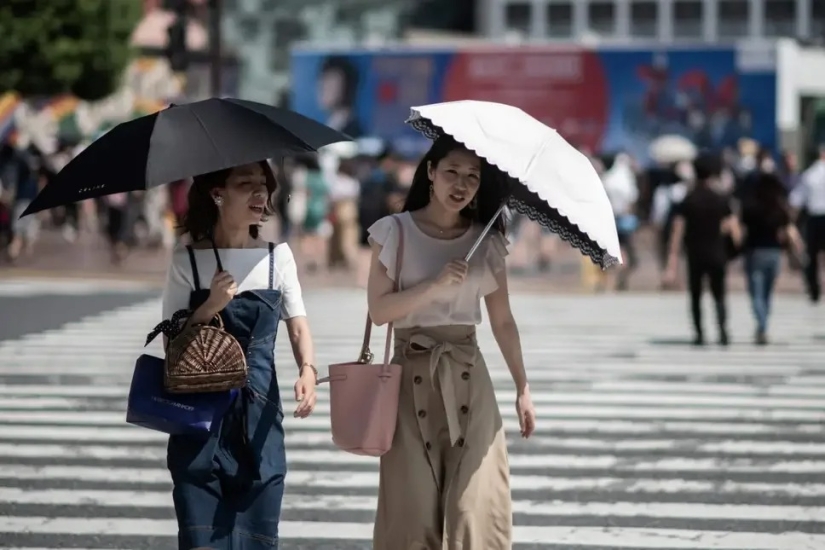
We are used to wearing open outfits in the summer. In some places in Japan, such as Kyoto or Osaka, there are many sunny days in summer. In hot weather, Japanese women wear closed clothes and carry umbrellas to protect themselves from the sun. After all, a tan increases the chance of getting skin cancer, which is extremely undesirable.
Recent articles

It's high time to admit that this whole hipster idea has gone too far. The concept has become so popular that even restaurants have ...

There is a perception that people only use 10% of their brain potential. But the heroes of our review, apparently, found a way to ...

New Year's is a time to surprise and delight loved ones not only with gifts but also with a unique presentation of the holiday ...